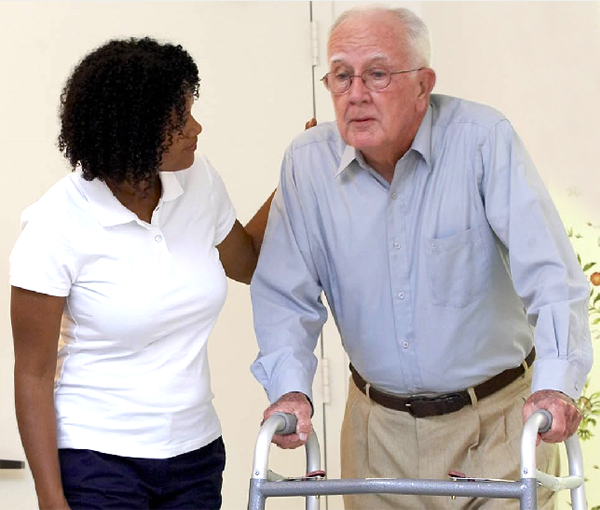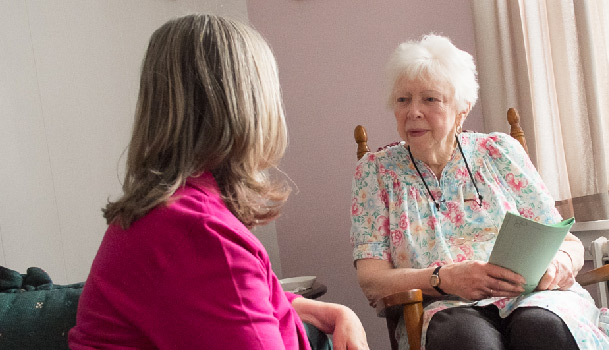The Care Transitions Intervention® is also known as the CTI® and the Skill Transfer Model®. During a 4-week program, patients with complex care needs and family caregivers receive specific tools and work with a Transitions Coach®, to learn self-management skills that will ensure their needs are met during the transition from hospital to home. This is a low-cost, low-intensity evidence-based intervention comprised of a home visit and three phone calls.


What Makes our Model Unique?
In contrast to traditional case management approaches, the Care Transitions Intervention® is a self-management model. The model draws from principles of adult learning and uses simulation to facilitate skill transfer to enhance self-management. As many of these patients are likely to experience another transition in the near future, the Care Transitions Intervention® aims to address both the patient’s current and future needs.
Using qualitative techniques, the Care Transitions Program® listened carefully to patients and family caregivers to identify and understand the key self-management skills needed to assert a more active role in their care.
Next the role of the Transitions Coach® was introduced to help impart these skills and help the individual and the family caregiver become more confident in self-care.
Patients who received this program are:
- Significantly less likely to be readmitted to a hospital.
- Less likely to incur further high cost utilization
- More likely to achieve self-identified personal goals around symptom management and functional recovery.
These findings are sustained for at least six months after working with the Transitions Coach®.
The Program Structure
Our program consists of the following components:
- A meeting with a Transitions Coach® in the hospital (where possible—this is desirable but not essential) to discuss concerns and to engage patients and their family caregivers in the Care Transitions Intervention®.
- Set up the Transitions Coach® in home follow-up visit and accompanying phone calls designed to increase self-management skills, personal goal attainment and provide continuity across the transition.


Critical to the program is the role of the Transitions Coach®
The Transitions Coach®is key to encouraging the patient and family caregiver to assume a more active role in their care. The Transitions Coach® does not fix problems and does not provide skilled care. Rather, Transitions Coaches® model and facilitate new behaviors, skill transfer, and communication strategies for patients and families to build confidence that they can successfully respond to common problems that arise during care transitions.
Health care services for improving quality care and safety of patients during transitions across care settings





